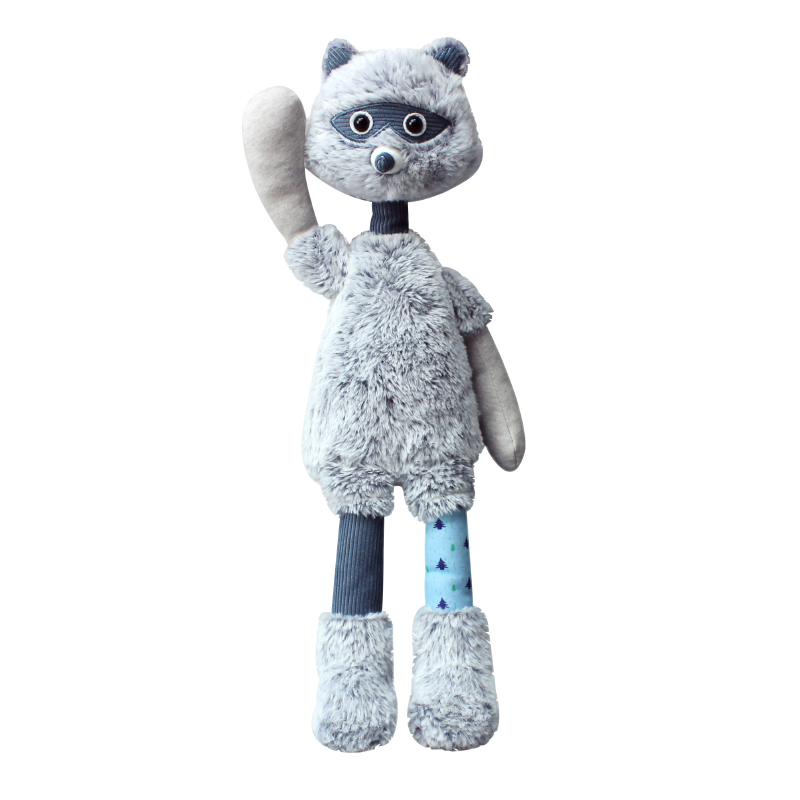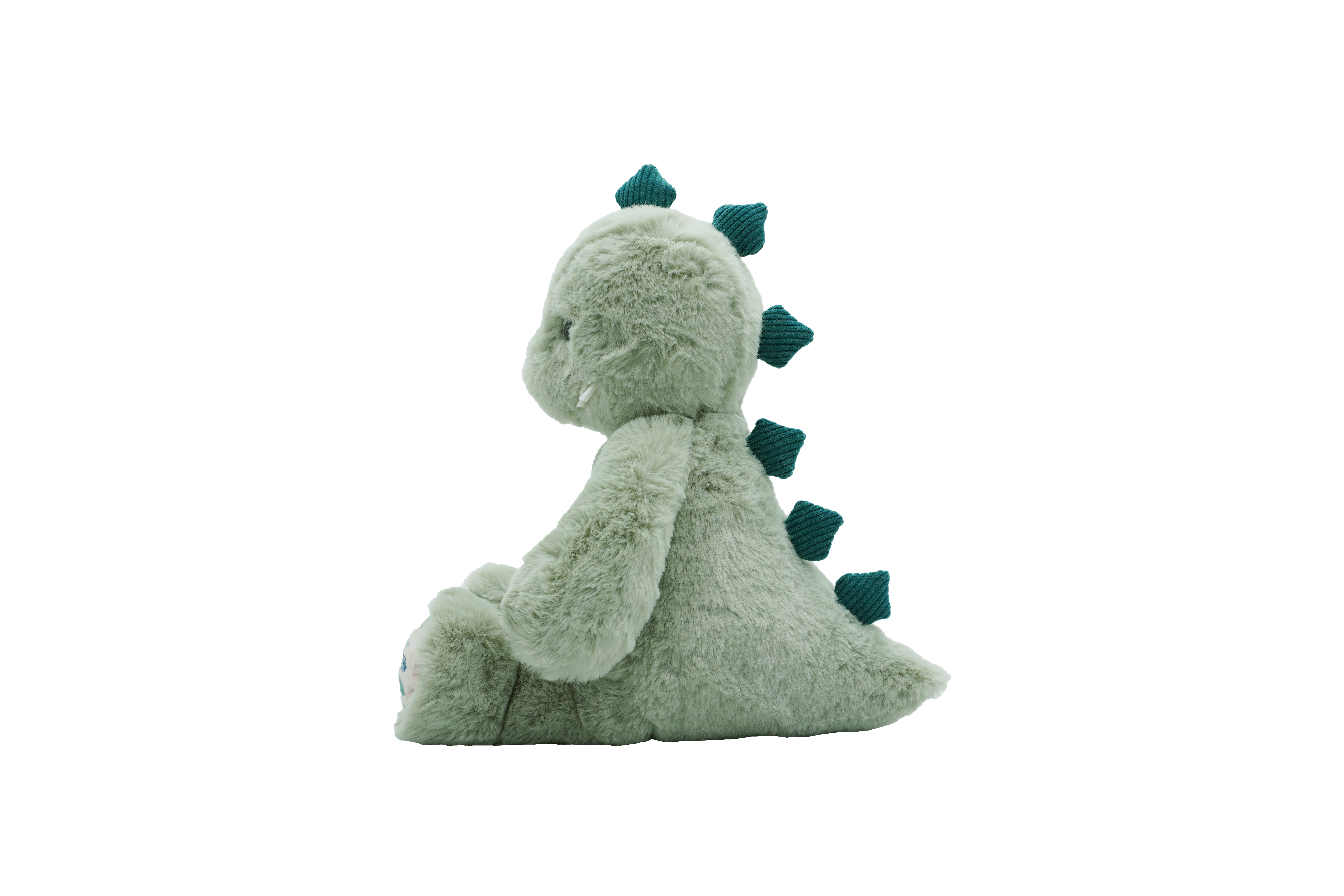Email format error
Email cannot be empty
Email already exists
6-20 characters(letters plus numbers only)
The password is inconsistent
Email format error
Email cannot be empty
Email does not exist
6-20 characters(letters plus numbers only)
The password is inconsistent


Small stuffed animals for infants are more than just adorable toys; they are essential companions that contribute to your baby's emotional and cognitive development. As parents, caregivers, or even gift-givers, understanding the benefits and importance of these plush toys can help in selecting the perfect ones for infants. This blog will explore various aspects of small stuffed animals, including their benefits, safety considerations, and tips for choosing the best ones.
The Benefits of Small Stuffed Animals for Infants
Emotional Comfort and Security
One of the primary benefits is the emotional comfort and security they provide. Infants often form attachments to these soft toys, using them as a source of comfort during stressful or unfamiliar situations. The familiarity of a stuffed animal can soothe a baby during bedtime, car rides, or even doctor visits.
Encouraging Emotional Expression
Small stuffed animals serve as an outlet for emotional expression. Babies often project their feelings onto their toys, hugging them when they are happy or sad. This early form of play can help infants develop empathy and understand emotions better as they grow.
Enhancing Cognitive Development
Cognitive development is another significant benefit. These toys stimulate a baby’s imagination and creativity, encouraging them to engage in pretend play. As infants grow, they start to assign roles and personalities to their stuffed animals, enhancing their cognitive skills.
Promoting Fine Motor Skills
Playing with small stuffed animals helps infants develop fine motor skills. The act of grasping, squeezing, and manipulating these toys improves hand-eye coordination and dexterity. This early practice is crucial for more complex motor skills they will need later in life.
Safety Considerations for Small Stuffed Animals for Infants
Choosing Age-Appropriate Toys
When selecting small stuffed animals, it is essential to choose age-appropriate toys. Always check the manufacturer’s recommended age range to ensure the toy is suitable for your baby. Toys designed for older children might have small parts or materials that are not safe for infants.
Ensuring Safe Materials
Safety is paramount when it comes to choosing small stuffed animals. Opt for toys made from hypoallergenic and non-toxic materials. Ensure that the stuffing is safe and does not pose a choking hazard. Organic cotton and other natural fibers are excellent choices.
Avoiding Small Parts
Infants are naturally curious and tend to put everything in their mouths. Therefore, it is crucial to select small stuffed animals that do not have small parts that could become detached and pose a choking hazard. Avoid toys with buttons, beads, or any other detachable elements.
Easy to Clean
Hygiene is a critical consideration for infant toys. Small stuffed animals should be easy to clean since they are likely to end up covered in drool or spit-up. Check if the toy is machine washable or can be easily wiped down to maintain cleanliness.
Tips for Choosing the Best Small Stuffed Animals for Infants
Consider Size and Weight
When selecting small stuffed animals, size and weight are important factors. The toy should be small enough for the baby to hold and cuddle comfortably but not so tiny that it could pose a choking risk. Lightweight toys are easier for infants to carry around and manipulate.
Opt for Bright Colors and Textures
Babies are attracted to bright colors and interesting textures. Choosing small stuffed animals in vibrant hues and various textures can stimulate their visual and tactile senses. Look for toys with contrasting colors and different fabric types to keep your baby engaged.
Look for Multi-Functional Toys
Some small stuffed animals come with additional features like rattles, squeakers, or teething elements. These multi-functional toys can provide extra stimulation and entertainment for your baby. Ensure these additional features are securely attached and made from safe materials.
Personalization and Keepsakes
Personalized small stuffed animals can make for treasured keepsakes. Adding the baby’s name or birthdate can make the toy special and memorable. Personalized toys are also unique gifts that parents often cherish long after the baby has outgrown them.
Popular Types of Small Stuffed Animals for Infants
Plush Teddy Bears
Teddy bears are classic small stuffed animals for infants. They are universally loved and come in various sizes and designs. Look for bears made from soft, plush materials that are gentle on your baby’s skin.
Soft Dolls
Soft dolls are another popular option. They often come with removable clothing, which can be fun for older infants who enjoy dressing and undressing their dolls. Ensure that any accessories are securely attached and free of small parts.
Animal Friends
Animal-themed stuffed toys, such as bunnies, elephants, and puppies, are delightful choices. These toys often have different textures and features, like long ears or tails, which can be intriguing for infants to explore.
Loveys and Blankies
Loveys or blankies are small, blanket-like stuffed animals that provide comfort. They combine the softness of a blanket with the cuddliness of a stuffed animal. Loveys are perfect for bedtime and can become a soothing sleep companion for infants.
The Role of Small Stuffed Animals in Early Development
Encouraging Social Interaction
Small stuffed animals for infants can also play a role in encouraging social interaction. Babies often use their stuffed animals as props in social play, interacting with caregivers and other children. This type of play helps develop social skills and communication.
Fostering Language Development
Talking to and about small stuffed animals can foster language development in infants. Caregivers can use these toys to introduce new words, describe actions, and tell stories. This interaction promotes vocabulary growth and language skills.
Building Independence
As infants grow, they start to explore the world around them. Small stuffed animals can act as transitional objects, helping babies feel secure while they venture into new experiences independently. These toys provide a sense of familiarity and comfort, aiding in the development of independence.
Encouraging Responsibility
Introducing small stuffed animals for infants can also encourage a sense of responsibility. As children grow older, they learn to take care of their toys, feeding them, putting them to bed, and ensuring they are safe. This early form of caregiving can translate into responsible behavior as they mature.
Selecting Small Stuffed Animals as Gifts
Consider the Baby's Age
When choosing small stuffed animals for infants as gifts, consider the baby’s age. Newborns will benefit from soft, lightweight toys, while older infants might enjoy more interactive stuffed animals. Always ensure the toy is age-appropriate and safe.
Think About the Parents’ Preferences
While selecting a gift, think about the parents’ preferences and values. Some parents prefer organic or eco-friendly toys, while others might appreciate personalized or themed stuffed animals. Taking these preferences into account can make your gift more thoughtful and appreciated.
Quality and Durability
Quality and durability are crucial factors when selecting small stuffed animals for infants. Choose well-made toys from reputable brands to ensure they can withstand the wear and tear of daily play. Durable toys are also safer, as they are less likely to fall apart and pose hazards.
Packaging and Presentation
Consider the packaging and presentation of the stuffed animal when giving it as a gift. Attractive packaging can enhance the joy of receiving the gift. Some stuffed animals come in beautiful gift boxes or with additional accessories that add to the overall appeal.
Caring for Small Stuffed Animals
Regular Cleaning
To keep small stuffed animals clean and hygienic, regular cleaning is essential. Follow the manufacturer’s instructions for washing and drying. Many stuffed animals are machine washable, but some might require spot cleaning or hand washing.
Inspect for Wear and Tear
Regularly inspect small stuffed animals for signs of wear and tear. Check for loose seams, holes, or detached parts that could pose a safety risk. Repair or replace damaged toys to ensure they remain safe for your baby.
Rotate Toys
Rotating toys can keep your baby engaged and interested. Having a variety of small stuffed animals allows you to switch them out periodically, giving each toy a break and keeping playtime fresh and exciting for your baby.
Store Safely
When not in use, store small stuffed animals in a clean, dry place. Avoid exposing them to direct sunlight for extended periods, as this can fade colors and weaken fabrics. Proper storage helps maintain the toys' condition and longevity.
Conclusion
Small stuffed animals for infants are more than just toys; they are cherished companions that play a significant role in a baby’s early development. From providing emotional comfort to enhancing cognitive and motor skills, these plush toys are invaluable during the early years. When choosing small stuffed animals for infants, prioritize safety, age-appropriateness, and quality to ensure you select the best possible companions for your little one. Whether as a comforting bedtime buddy or a playful daytime friend, small stuffed animals are sure to bring joy and comfort to any baby's life.